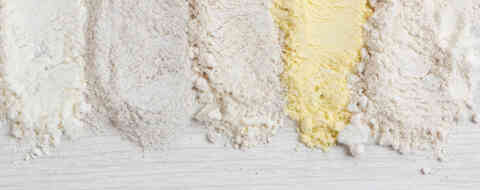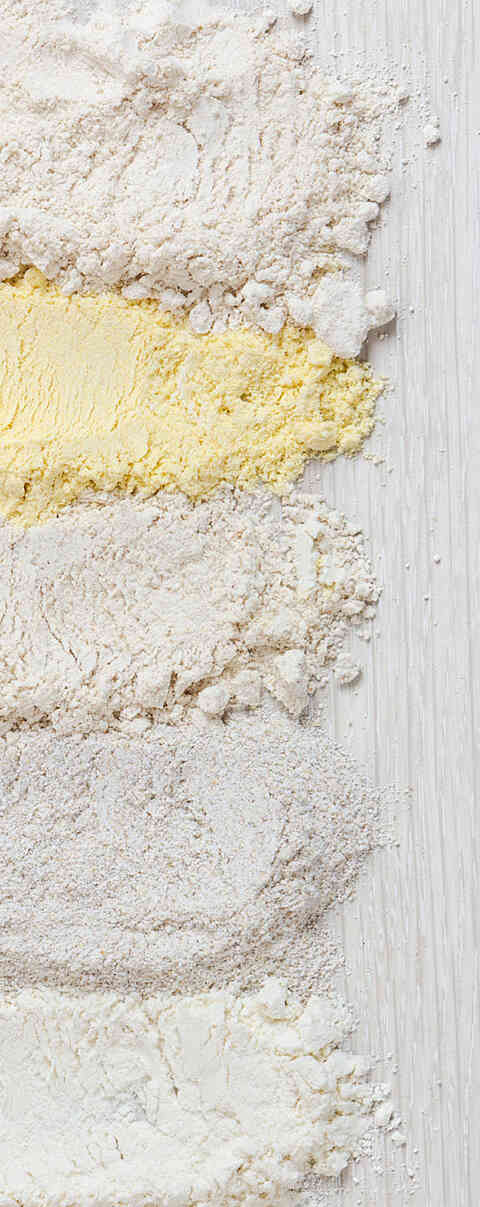
FAB flour
Flour is an amazing and versatile product. About one third the food on supermarket shelves contain flour and it provides significant quantities of essential vitamins and minerals
Where flour comes from
Flour is a natural product made from wheat. In the UK, about 85% of the flour we consume is milled from homegrown wheat. Some people worry that flour is over-processed but all that happens in the milling process is that the wheat seeds are opened up and the flour is scraped away from the bran coating and the wheat germ. Rather like opening an avocado and scraping the flesh from the skin and stone.

Types of flour
Wholemeal flour
This is made from the whole wheat grain with nothing added or taken away
White flour
This usually contains around 75% of the wheat grain. Most of the bran and wheatgerm are removed during the milling process
Stoneground flour
This is wholemeal flour ground in a traditional way between two stones
Plain flour
This flour has a lower gluten content than strong flour and is suited to biscuits and pancakes and other products that don't need to be risen. It can be used to make cakes if a raising agent is added
Brown flour
This usually contains about 85% of the original grain. Some bran and germ have been removed
Malted flour
This is brown or wholemeal flour with added malted grains. It is sometimes called granary flour, but this is in fact a trademarked flour produced by Hovis
Bread / strong flour
This flour had a high protein content, which will allow gluten to develop and is therefore good for making bread or pizza
Self-raising flour
This is low-gluten flour that have had chemical raising agents added. Suitable for cakes, scones and other products that rise

How to store flour
Like all foodstuffs, flour should be stored in a certain way to keep it at its best. We have some handy hints for you on how to store flour, plus some hints and tips for preventing and getting rid of flour infestations
Flour can be stored in its original packaging or in an air tight container on a shelf or in a cupboard in a cool part of your kitchen. You shouldn't mix old flour with new flour.
Wholemeal flour keeps for less time than white flour as the oils from the germ and bran can become rancid. Wholemeal flour will normally keep for about three months while white flour will be okay to use for six to nine months
The role of flour in the diet
It's not a well known fact, but flour is a major contributor to significant quantities of vitamins and minerals. All the data outlined below and on the pages we link to is taken from the UK government's National Diet and Nutrition Survey

Teenagers get more calcium from eating flour-based products than they do from milk and dairy products

In the UK we get more iron from flour-based products than we do from eating meat

Teenagers get more fibre from flour than from any other source
